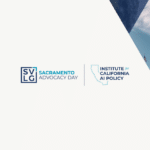SVLG made waves in the infrastructure policy arena with its largest forum yet on April 27, with appearances by top Biden Administration officials on transportation and housing policy and other leading California voices on those important issues.
Viewers of the online event enjoyed an array of fascinating conversations with guest speakers including Adrianne Todman, Deputy Secretary of the Department of Housing and Urban Development; Katie Thomson, Director of Bipartisan Infrastructure Law Implementation at the U.S. Department of Transportation; and Toks Omishakin, Secretary of the California Transportation Agency. The Forum also featured special appearances by Governor Newsom, CA Senate President Pro Tempore Toni Atkins, Bay Area Transportation icon Rod Diridon, Sr., and other important voices.
***
Senate President Pro Tempore Toni Atkins kicked off the forum, noting that, as people continue to gravitate toward California’s tech sector, biotech companies, and the entertainment industry, the need to upgrade and maintain our infrastructure is increasingly important.
Sen. Atkins emphasized the connection between infrastructure and equity, touching on the need for greater broadband access in unserved and underserved areas. She said that freeways and public transit were needed to connect workers with employers and families with one another, but also to generate jobs. She also mentioned the need for preparation for climate change and rising sea levels.
“At the end of the day, investing in infrastructure is really investing in Californians, and every Californian is worth it,” she said.
On housing, Sen. Atkins noted the need for affordable housing near places of employment to reduce commute times and traffic. She advocated for aid to families still struggling to pay rent as a result of COVID-19, and a program to assist first time home buyers with a 20% down payment.
“Owning a home lays the foundation for creating generational wealth and strengthening the middle class,” she said, referring to the California Dream for All program.
***
Interviewed by Katie Ferrick, Sr. Director of Workplace Programs at LinkedIn, Deputy Secretary of the U.S. Department of Housing and Urban Development Adrianne Todman discussed the rollout of Federal policies and programs including the $1.2 trillion Infrastructure Investment and Jobs Act, focusing on the housing deficit and what HUD is doing to help.
Asked about the state’s 3.5 million-unit housing deficit and the need for additional housing, she noted that California has fewer units or housing per person than the national average.
“Sadly, California is not unique in terms of what it’s experiencing right now in terms of housing supply and also just housing affordability,” she said, adding that President Biden, Vice President Kamala Harris, and HUD Secretary Marcia L. Fudge understand these challenges in California.
To keep families in the homes during the pandemic, HUD has offered relief for rent and mortgage payments. A $35 billion housing supply fund will be provided to states and localities to help build additional housing, encouraging them to build in a smart way, she said.
On homelessness, she noted that hotels and motels were being repurposed to provide housing using federal funds, adding that it is important for citizens to raise their concerns to their local elected officials.
“If we are not making clear that this is something that we want to solve as taxpayers, or just people who live in this country, then it won’t be solved,” Todman said. “And it’s going to take all of us to get it right.”
***
In a conversation with Jason Baker, SVP of Infrastructure & Regional Partnerships at SVLG, Katie Thomson, Director of Bipartisan Infrastructure Law Implementation with the US Department of Transportation, gave an overview of the $660 billion in funding that she will be working to allocate across the country.
Thomson expressed her excitement over the level of investment and its potential to improve the lives of all Americans. While much of the funding will go toward deferred costs in areas where investment has been too low, she looks forward to making significant improvements and hopes that successful implementation will help convince congress of the need for further investment.
“We all know that we have underinvested in infrastructure in this country for decades and it will take us a long time to catch up,” she said. Still, the promise of this funding is enormous, and she is looking ahead. “I’m really focused on delivering on the promise of this law,” she said.
Among the many, many improvements it will bring, the law will allow for the replacement of 500 aging subway and light rail cars, and will swap out 10,000 fossil fuel emitting vehicles for low emission vehicles.
“Particularly for transit, this is transformative,” Thomson said.
Asked how the infrastructure law takes into account Diversity, Equity and Inclusion (DEI), Thomson said that equity is a priority of the Biden Administration, and ensuring equity in transportation and housing is simply the right thing to do.
“Equity is a cornerstone of every element of the bipartisan infrastructure law,” adding that linking transit systems like rail, buses and air will open the door for more people to use transit.
“We’re trying to look more holistically at a connected system that gives people more options to travel the way they need to travel to meet their needs.”
***
SVLG was honored to host California Governor Gavin Newsom, who spoke about strategies and funding for improving housing, transportation, and high-speed rail, with a view to improving quality of life and addressing the climate crisis. View Gov. Newsom’s remarks here.
The governor touted elements of the $100 billion California Comeback Plan, including $11 billion that he recently proposed for transit rides and commuters around the state, and an additional $9.1 for transportation infrastructure, including bike lanes, pedestrian projects and high speed rail. He noted the need for shortening commutes, making sure people can live closer to where they work, and creating more housing near downtowns. He emphasized the link between housing and climate change, and the need to reduce commutes in order to reduce emissions.
“The bottom line is we’re leaning in this direction in ways we haven’t done in the past,” Newsom said, adding, “I appreciate your leadership, I appreciate your example, I appreciate your holding us to a higher level of accountability.”
***
To learn more about the Forum, please check out some of our recorded event segments:
Governor Newsom talks about infrastructure goals for the Golden State and his administration’s plans to address them.
SVP of Tech and Innovation Peter Leroe-Muñoz talks with California-based Aurora about autonomous freight transport and the role it can play in solving America’s supply chain problem.
VP of Housing for SVLG talks with Michael Van Every of Republic Urban Properties about the challenges of permitting and what AB 2234 can do to put more affordable housing into the market faster.
SVLG’s Marlee Smith goes to Diridon Station to talk with the man it was named for – Bay Area transportation legend Rod Diridon Sr. They discuss high speed rail and what it can do for the greater Bay Area.
Full Rebroadcast of Building Forward Forum
###



